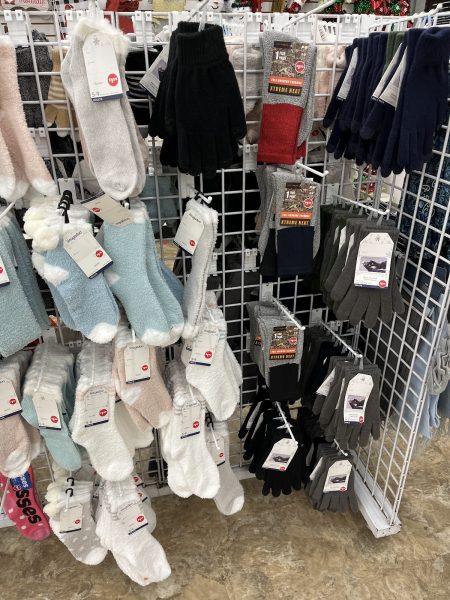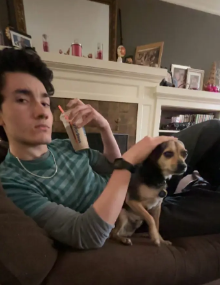
In recent years, Portland has seen freezing ice storms which caused mass power outages, shut down roads, and led to numerous fatalities. With rising rates of houselessness and poverty in the city, many Portlanders find themselves ill-prepared for winter, especially those who live outside. As the cold closes in, people who face housing insecurity are in need of support — but how do we support them?
Gus Kroll, a social service worker, may provide an answer. Kroll works at Transition Projects, a local organization focused on moving Portland’s houseless off the streets and into affordable housing. “I am not representing the official position for either, but [I’ve] been doing this kind of work for a long time,” says Kroll, refrencing his work with Transition Projects and Sisters on the Road. For those who face housing or financial insecurity, Kroll recommends connecting with direct service organizations, which provide resources and help face-to-face rather than connecting people to third parties. “Often they are going to be offering blankets, sweaters, sweatshirts, jackets … the kind of things people need to stay warm,” explains Kroll. He points to the People’s Store and PDX Saints Love as examples of these organizations. The People’s Store is a mobile mutual aid organization, while PDX Saints Love offers showers, haircuts, and community meals. He recommends these groups due to their reliability, though he admits there is sometimes a lengthy process to get involved with the shelters.
Kroll believes in working to build a culture that supports its most disadvantaged members: “It’s wanting our society to be a place where if you or I were to end up in a situation [where we] need that help, [we could get it].” He emphasizes that with inflation and the ever-increasing wage gap, “we’re all three bad months from being homeless; none of us are three good months from being a billionaire. Look at the folks in Asheville, NC — a couple of months ago, they were fine. There were … local business owners who would have never imagined themselves now potentially living in a tent; … any one of our houses could collapse, [and] suddenly, we look a lot more like the folks living in tents along Powell than we do Jeff Bezos.”
Jeanne, who requested to go by first name only, volunteers with Feed the Streets and says the best way to keep folks warm this winter is “more shelters, shelters that accept animals, shelters that don’t place restrictions on people.”
Despite their benefits, both Jeanne and Kroll mention the limitations of shelters; they aren’t a quick fix. Many shelters have their own requirements such as mandatory sobriety, and some shelters are single-sex or animal-free. “Sometimes a poor fit is no fit at all,” states Kroll.
Jeanne encourages people who want to help to speak up: “Insist — demand — that our leaders provide adequate, warm, dry shelter throughout the rainy, cold months, [and] STOP THE SWEEPS! People’s belongings are getting thrown away and they are losing shelter and clothing and blankets and all the things that keep them warm-ish in the first place.”
People often shy away from interacting with their unhoused neighbors. Houseless people are stigmatized and pushed to the corners of our urban world. “Treat them like a human. Don’t look away,” Jeanne says. “Give them food. Give them money if you don’t have food.” Kroll aims to break down the assumptions around housing insecurity and poverty. He remarks, “Of course, there are people who are living outside who are willing to turn to anything to make life feel a little less rough … even if it’s that brief high that comes with heroin [or] fentanyl.” However, he continues, “I’m not trying to romanticize people living outside with addictions; some of them are jerks. But good thing I don’t know anyone who lives inside who’s a jerk.”
Jeanne suggests donation as an easy way to support the cause: “Any organization that provides on-the-ground supplies and outreach could use money to feed and supply unhoused people.” Organizations in this field are always low on resources, Kroll highlights. He advises donating “anything that you can imagine needing on a camping trip gone terribly wrong.” Kroll also offers his hands-on approach of donation: “I often [have] in my car a goodie bundle. … I usually put in them a pair of socks and a couple other useful items.”
Adam Moore, homeless services director for Union Gospel Mission of Portland, encourages understanding towards impoverished communities. “I remind people that under that tent or blanket is a human being, and every human being has a right to dignity, love, and respect … and to be helped. They’re our neighbors.”


































